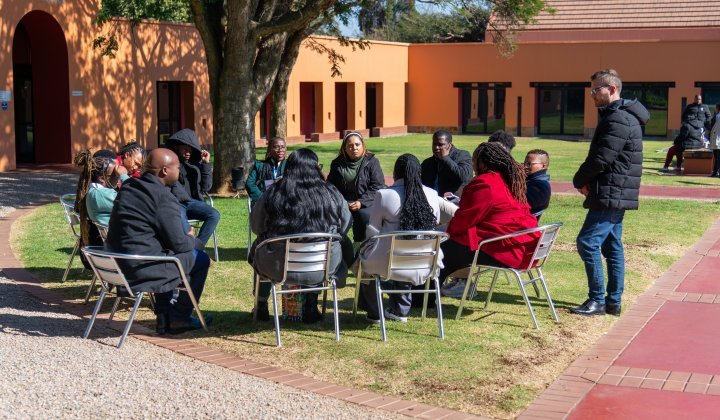The benefits of digital technology to society are well documented. Through digitalisation, the global community has been able to connect better, while the world has become accessible even to those who would have otherwise been left behind. In our world, it is not unheard of for people manage their entire lives on their cellphones. People can switch on the lights at home and close the curtains while transiting through different cities or even continents with a mere swipe or an artificial intelligence command system.
The rapid advancement of these technologies has also made it possible for teaching, learning, and research in academia to be less daunting. For instance, in the 1990s and maybe even into the early 2000s, finding research articles, books, and citations online was unfathomable. People went to the university library, learnt how to navigate the Dewey system and borrowed books. But, in the last two decades academia has embraced the limitless possibilities of the information superhighway. Technology has changed how we all view the world, so much that now we even recognise the limitations of physical classroom teaching and learning with regard to democratising access to education.
Technology is without doubt the cornerstone of future education, not only in South Africa, but throughout the world. For GIBS, the transition to digital has been gradual and consistent for at least 16 years. The approach to changing technology has not only focused on improving access to education and ensuring that academic programmes cover technology, digital literacy, and the like. There has been a concerted effort to transform the entire organisation into a digital powerhouse that is also inclusive, accessible, and user friendly.
“Early on, there was an understanding that if we were going to produce good general managers in the MBA programme, they also had to understand technology,” says Professor Manoj Chiba, MBA director at GIBS and long-standing faculty member. “We do not teach coding or any of those technical skills, but our graduates needed to know how to manage, how to speak the language. It was going to be important for senior managers, executives, to be able to do it. So we did it in a few ways at GIBS. We embedded it into our core programme, which is the MBA, and we started offering quite a number of open programmes.” Prof. Chiba has been part and parcel of the university’s digital transformation over the years.
Moving with the times
GIBS’ approach to digitalisation is multilayered and relies on strong visionary leadership. Chiba acknowledges the support of GIBS Dean Professor Morris Mthombeni, as well as head of strategy and digital Abdullah Verachia and other leaders who have been instrumental in the development of academic programmes and other institutional advancements.
One layer is concerned with the curriculum and ensuring that the academic courses on offer take into consideration the changing digital landscape. As MBA director, Prof. Chiba looks after the portfolio in its entirety. This means he always has to have his proverbial feelers out, and constantly seek ways to make GIBS’ flagship programme more competitive and, most importantly, more relevant to the modern organisation. When he took over the role, he traced the evolution of the programme and found a golden thread that has been running through the GIBS MBA for at least 14 years.
“What became apparent is that we have been talking about digital in some shape or form across all our modules for the last 12-14 years. It was already embedded in our academic foundations. So, we made a major shift just before Covid, around 2018-19, when we restructured our MBA and moved away from the traditional offering to a set of core modules. In this core module, we cluster all the other traditional courses under themes,” he explains.
In the old MBA structure, Organisational Behaviour was traditionally the first module. What has since happened is that it now falls under a cluster of modules under the theme of Understanding the Environment of Business. That theme is now followed by Innovation and Design, Decision Making, Strategic Implementation and Leadership – all of which encompass elements of technology education in one form or another. The aim is to produce business leaders who are innovative and are equipped with the skills to formulate the appropriate strategies to deal with transformation, as well as make bold, forward-thinking decisions.
Building solid digital foundations
The GIBS way is tried and tested and after decades in the business of executive education the institution has determined what works and what doesn’t. The process starts with building solid digital foundations. No new programme is brought into the academic space without first being thoroughly tested. This is also another arena where the head of digital plays a critical role. New layers of technology are added and tested before programmes are accessed by the various groups of users.
The repository of knowledge, experience, and skills, as well as the human capital within the school collectively, drive the execution of GIBS’ digital strategy. Before a new academic programme is launched, a lot of work is invested in its development. The stakes are high in a competitive academic space. Once launched, there is no turning back, so any academic programme has to be solid.
From 2025, the GIBS MBA programme will include a focus area called Digital Leadership. This is in response to a growing demand for more knowledge, information, and direction on how best to manage organisations amid the digital transformation. This focus area is years in the making. It has been pulled apart and tested for relevance, academic rigour, and many factors before it is finally offered at the university. Once it is taught, there is room for innovation on the final deliverable, which the Master’s research committee will oversee to make relevant and better, under the guidance of lead faculty member Abdullah Verachia.
Advancing digital literacy
Another layer to GIBS’ digital transformation is inclusion and literacy, that is, ensuring that the entire school body is on board with technological developments. With digital literacy becoming an important component in the fabric of society in not just South Africa but the whole African continent, no one can be left behind. The reality for millions of people is that if you do not have the necessary digital proficiency, you will be lost when the conversations around AI are taking place. Chiba strongly believes that it is important to close the digital inequality gap that exits as a result of assuming that access to technology equals proficiency in usability.
In an academic space, it is important for the people for whom the technology is created to understand how it works. Accessibility has to go beyond having a high-tech device and access to the internet. Academics, students, clients, and staff need to able to use the technologies effectively, and fully maximise their potential.
“When we talk about the digital revolution, it is also about how to bring people along the journey. And so GIBS is approaching this from an internal staffing perspective, employee perspective, as well as the market perspective,” says Chiba.
Using technology to democratise access to education
Not all institutions of higher learning are built the same. Some are ahead of the curve in terms of their technological advancement, while others are yet to make the necessary transition. GIBS has been lucky to have visionary leaders who provide the necessary support for the digital development team to be innovative. As a result, it is punching above its weight in terms of creating the university of the future where face-to-face interactions are not the only option for students who want to draw from its academic offerings.
Turning GIBS into a paperless school also bodes well for its environmental footprint, as there aren’t reams of exam papers and scripts to be stored on the premises. As part of democratising access to good quality education, GIBS is now offering an online PDBA and soon an online MBA. People who do not live in Johannesburg and its surrounds can now benefit from the world-class executive education on offer.
This practice of online executive and higher education is not unique to South Africa as many global universities offer academic programmes online. Ensuring that teaching, learning and research can take place in a borderless yet fully digitised place of higher learning is nothing short of revolutionary.
KEY TAKEAWAYS:
- Digital transformation is the hallmark of executive education at GIBS.
- Technology has to be accessible, usable and relevant to its users.
- Strong and innovative leadership is the foundation of an effective digital strategy.




